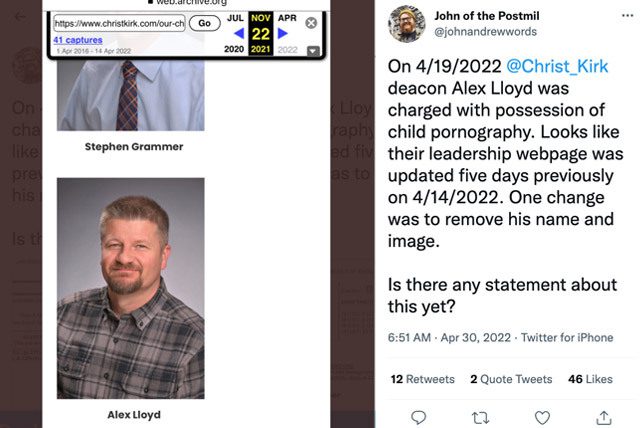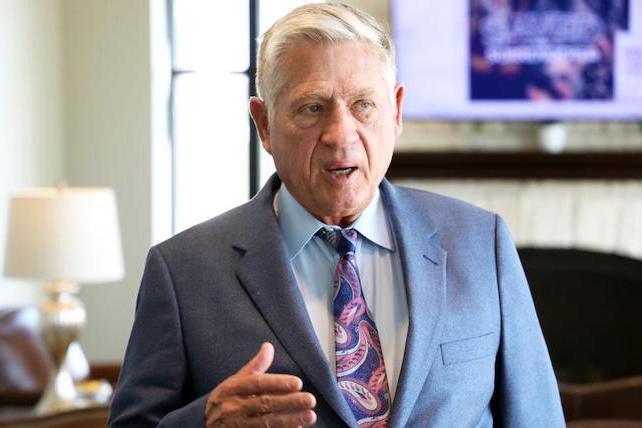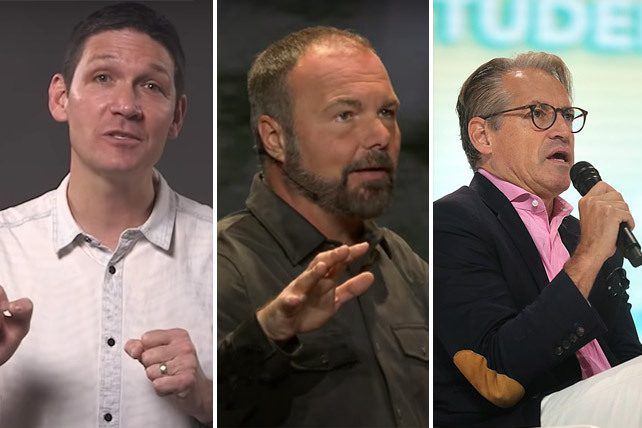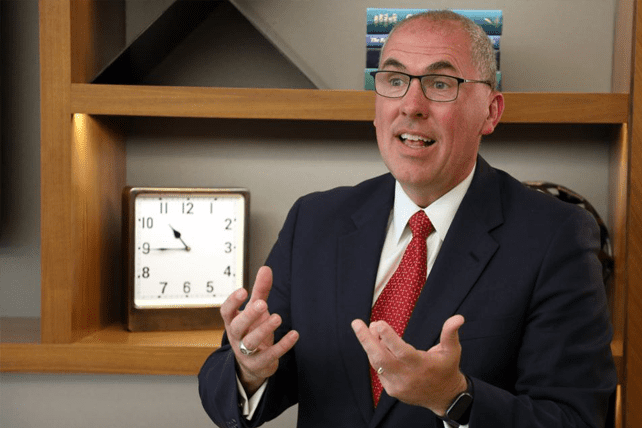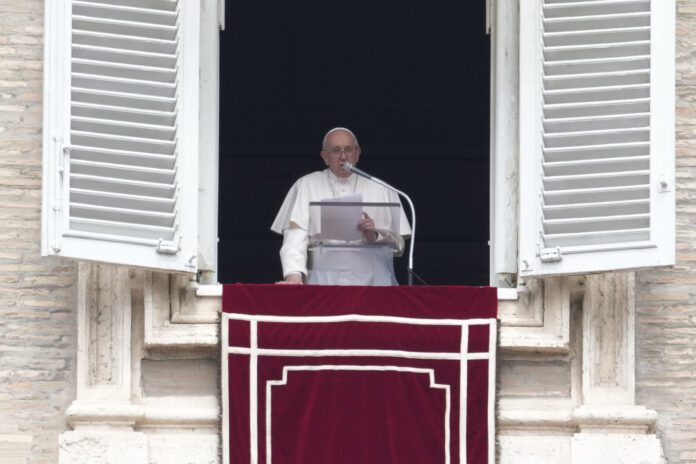Alex Lloyd, a former deacon at Douglas Wilson’s church in Moscow, Idaho, has been indicted in federal court for possessing child pornography. Lloyd, who according to Christ Church was a deacon until January 2022, has pleaded not guilty to the charges.
Alex Lloyd’s Trial Set for June 21
Christ Church and its pastor, Douglas Wilson, have generated controversy for reasons that include Wilson’s interpretation of complementarianism, his book “Southern Slavery As It Was,” and for how the church has handled allegations of sexual abuse. Christ Church also made headlines in the fall of 2020 for holding “psalm sing” events in protest of Moscow’s COVID-19 restrictions.
Alex Lloyd was indicted on April 19. Court documents state that “On or about the dates of March 22, 2021 through January 12, 2022, in the district of Idaho, the Defendant, ALEX LLOYD, did knowingly possess materials…which contained child pornography.” According to the documents, these materials were on an Apple iPhone 8.
The documents say in part that child pornography is defined as “one or more visual depictions, the production of which the Defendant knew involved the use of a minor engaging in sexually explicit conduct, and which involve a prepubescent minor or a minor who had not attained 12 years of age.”
Should Lloyd be convicted of possessing child porn, he will be required to forfeit those materials and “any matter which contains any such visual depiction,” that is, his iPhone. Lloyd has been released on conditions and his jury trial is set for June 21 at 1:30 p.m. in Coeur d’Alene.
An article by the Moscow-Pullman Daily News states that Alex Lloyd was listed as a deacon on Christ Church’s website until April 14, when the church removed Lloyd and updated its list of leaders. The archived webpage linked in the article, however, is dated November 2021, and an archived capture of the webpage dated April 14 does not show Lloyd on the church’s website.
As the news breaks on social media, some are circulating a quote from a blog Douglas Wilson wrote May 18, 2018, titled, “Dirty Omniscience.” The post focuses on the extent to which, in our digital world, people’s private information is not that private at all.
Wilson contrasts this “dirty omniscience” with the omniscience of God and states: “Digital information is highly susceptible to manipulation, and digital information is highly portable. I believe that we should begin the fight to outlaw all such information in court, and we should lead by courteously disbelieving any report made against anyone on the basis of what somebody ‘found on their computer.’”
The quote some are drawing attention to is as follows:
In the old days, if the cops found a warrant for a man’s arrest, and they showed up at his house, and they found the basement full of child porn magazines, this was a scenario in which the biblical standards of evidence could be met (multiple witnesses, etc.). But if the agents cart off his computer, and then late that night down at the station, they “find” child porn, there are too many problems. Was the porn actually there (as it often is), so guilty as charged? Was it placed on the computer via a thumb drive after the arrest? Was it planted on the computer by that man’s enemy before he placed the phone call that led to the request for the warrant?
As a corollary, we should also be extremely skeptical about claims and accusations made on the basis of this kind of thing.

